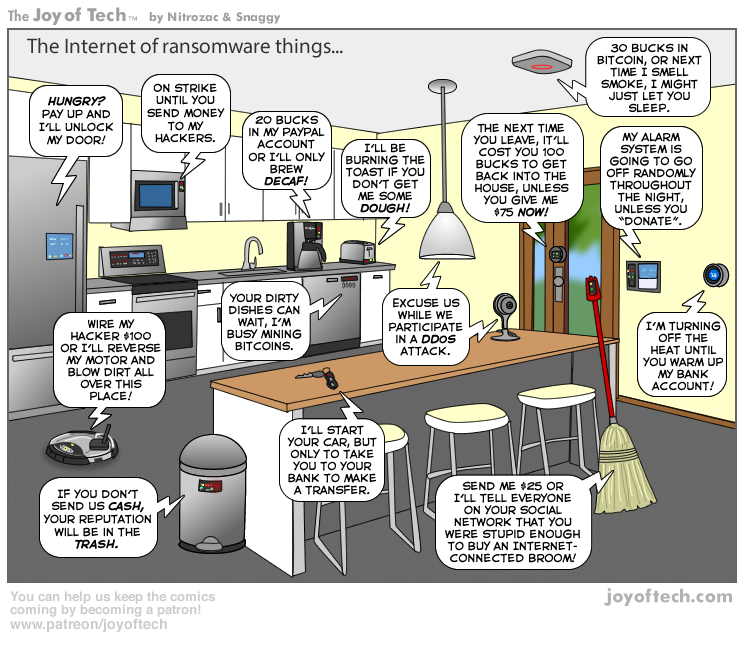Published on 17 Oct 2016
Check out http://audible.com/thegreatwar for a free trial and a free audiobook from the great selection that Audible has to offer.
This episodes contains images that are orphaned works for which the copyright holder is not known.
The Battle for Lake Tanganyika in German East Africa was one of the most bizarre battles of World War 1. It only really started once the Royal Navy had carried two boats through the jungle and the mountains from Capetown. Their names: Mimi and Toutou. Their commander: Geoffrey Spicer-Simson, probably the weirdest high ranking officer in the entire war.
October 18, 2016
Mimi, Toutou and Fifi – The Utterly Bizarre Battle for Lake Tanganyika I THE GREAT WAR Special
This is really what the Internet of Things will be like
QotD: “Smart Growth” regulations hurt the poor
In the 1970s, municipalities enacted new rules that were designed to protect farmland and to preserve green space surrounding rapidly growing cities by forbidding private development in those areas. By the late 1990s, this practice evolved into a land-use strategy called “smart growth.” (Here’s a video I did about smart growth.) While some of these initiatives may have preserved green space that can be seen, what is harder to see is the resulting supply restriction and higher cost of housing.
Again, the lower the supply of housing, other things equal, the higher real-estate prices will be. Those who now can’t afford to buy will often rent smaller apartments in less-desirable areas, which typically have less influence on the political process. Locally elected officials tend to be more responsive to the interests of current residents who own property, vote, and pay taxes, and less responsive to renters, who are more likely to be transients and nonvoters. That, in turn, makes it easier to implement policies that use regulation to discriminate against people living on low incomes.
Sandy Ikeda, “Shut Out: How Land-Use Regulations Hurt the Poor”, The Freeman, 2015-02-05.




